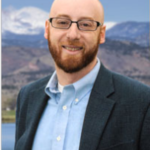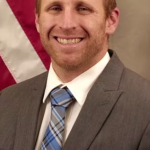
This is a tough year for making responsible political endorsements. We pride ourselves on putting together the most complete and well-researched election guide around. We lose sleep over it; we argue passionately over it; we try to look at every issue and race from every angle before making a recommendation.
As all of our regular readers know, we never choose a candidate simply based upon party affiliation. We are pretty darned critical of both major parties and we aren’t afraid to endorse a Green or Libertarian or Republican candidate if we believe they are the best person for the job.
As always, we made every attempt to interview every candidate, and with few exceptions we did so. Jared Polis refused to do an interview with this paper for the first time ever this year. That was disappointing. If you’re going to support fracking and oppose the setbacks in Proposition 112, we feel like you should be willing to, at a minimum, explain those positions to voters.
But here we are in 2018 and Donald Trump is president, and that’s where it gets complicated.
As has been written in this intro many times in past years, we believe in the Howard Zinn view of the two-party system. That’s to say that the establishment wings of the two parties are 98 percent the same when it comes to economic issues, both being funded by billionaires who want to achieve similar economic goals, namely the status quo for themselves.
The main differences between the major parties tend to be based around social justice and civil rights issues such as race, gender, sexual orientation, abortion and education.
But again, here we are in the time of Trump and the old thinking no longer seems to apply. That creates new challenges for our endorsement process.
For example, the most recent scientific research, a report released on Oct. 1, by the Intergovernmental Panel on Climate Change (IPCC) — the world’s scientific authority on global warming — says that we only have approximately 11 years to stop global warming at our current rate of greenhouse gas emissions, including carbon dioxide and methane, the primary ingredient of natural gas. It says that the only chance to save the planet is to take rapid and radical action to halt the use and development of fossil fuels.
Normally, such dire warnings from the scientific community would serve to affirm our position that working to stop global warming is a litmus test for a Boulder Weekly endorsement at the state or federal level. And we’re not talking about rhetoric where politicians spout phrases full of words like “sustainability” or “clean energy” and then work against real laws or amendments that would actually make a difference. We’re talking about candidates willing to take serious action to stop global warming. In a normal year, I don’t know how we could have endorsed a candidate that didn’t fully support Proposition 112. As we have often written, we see Democrats who take corporate and party money in exchange for not doing anything that might upset the oil industry as just a different flavor of climate change denier. When it comes to losing the planet in a short 11 years without radical action, their continued support for the George Soros, Michael Bloomberg pro-natural-gas position is no different than an old Republican senator throwing a snowball on the Senate floor and declaring it to be proof that the planet’s doing just fine — thank you, Jim Inhofe.
At some point, all of us have to choose: Do we believe the billionaires who fund the Democratic Party, who tell us the natural gas they have so heavily invested in is good; or do we believe the scientists who tell us that if we elect these natural-gas proponents, people like Polis and Joe Neguse, for even one more term, it will likely all be over, too late to turn things around.
But unfortunately it’s not that simple this year, as we live in the time of Trump. We understand that if a massive blue wave doesn’t wash over this country in the next 30 days, then this president, who has done such harm for people of color, women, the LGBTQ community, journalism, law enforcement and countless other areas, could well finish destroying our democracy, or at best, set it back for decades to come. Our children will grow up in a world where they only believe the other side is wrong and that all information that they don’t agree with is fake.
So we have to ask ourselves: How do we not endorse Jared Polis — even though we truly believe his environmental policies could well destroy the planet in the very near future — when the alternative is a Trump clone with an equally bad or worse environmental position, plus a thousand other problems on social justice issues that Polis doesn’t have?
Then I hear the voice of Zinn saying that the two parties always control us by making their enemies seem so scary that we feel forced to vote for the lesser of two evils out of fear.
But Trump is president, and we do fear. We fear the racism, the totalitarian leanings and narcissism so deeply ingrained that our president could see a nuclear exchange as preferable to being personally embarrassed. These are not ordinary times.
In the end, after hours of talking, frustration, anger and, for me, at least a certain amount of shame, we are endorsing a lot of Democrats who will do nothing to create the radical change we need to save the planet over the next 11 years, the last 11 years when we can still make a difference.
In several races — there is simply no other way to frame it — we are advocating for the lesser of two evils. So with few exceptions, which you will find in the following pages, we recommend you turn out in mass and vote blue this year.
It’s a sad day when this paper feels compelled to make such a dull-bladed suggestion to our readers. But these are extraordinary times, and we must all do what is necessary to turn from the destructive path on which we now find ourselves.
And then, as quickly as possible, we need to hold the Democratic Party, its candidates and elected officials responsible for their planet-destroying policies designed more to raise money and placate the oil and gas industry than to protect the planet. But first thing’s first. — Joel Dyer, Editor
FEDERAL OFFICES
Representative to the 116th United States Congress – District 2
Joe Neguse – Democratic (D)
Peter Yu – Republican (R)
Roger Baris – Libertarian (L)
Nick Thomas – Independent (I)
There are several candidates Boulder Weekly has chosen to support in spite of what we consider deeply problematic flaws, mostly related to the influence of corporate money.
Joe Neguse is one of those candidates.
 That being said, there’s a lot to like about Neguse. He’s the son of East African immigrants, which he credits for his nearly life-long dedication to public service and his commitment to reforming American immigration and protecting DACA recipients. He’s in favor of expanding Medicare, which he calls a great “vehicle” for universal health care, and he supports a $15 minimum wage tied to inflation. He’s championed paid parental leave and voiced his concerns about how the Democratic Party has slowly but surely forsaken unions and the right of workers to collectively bargain over the years.
That being said, there’s a lot to like about Neguse. He’s the son of East African immigrants, which he credits for his nearly life-long dedication to public service and his commitment to reforming American immigration and protecting DACA recipients. He’s in favor of expanding Medicare, which he calls a great “vehicle” for universal health care, and he supports a $15 minimum wage tied to inflation. He’s championed paid parental leave and voiced his concerns about how the Democratic Party has slowly but surely forsaken unions and the right of workers to collectively bargain over the years.
Neguse calls climate change the “overriding concern for my generation.” He supports taxing carbon emissions, investing in renewable energy, eliminating oil and gas subsidies in the federal tax code and banning extraction on federal lands.
Which is why we take issue with the numerous law firms from which Neguse has accepted campaign money that support oil and gas development.
Neguse has taken campaign contributions from Brownstein, Hyatt et al, the law firm that represented the Colorado Oil and Gas Association against citizen initiatives passed in Lafayette, Longmont and Fort Collins. His campaign has also accepted contributions from Polsinelli, which represented Extraction Oil & Gas in the recent civil suit against several nonviolent protesters at a recent action against pending extraction near Bella Romero Academy in Greeley. Holland & Hart and Hogan Lovells, both of which have represented large oil and gas extraction companies, have also supported Neguse, not to mention Snell & Wilmer, who Neguse still works for as an attorney.
In our conversation with Neguse, he voiced support for Proposition 112, saying he signed the initiative earlier in the year when it was still numbered 93.
It would take an act of God to keep Neguse from winning the CD 2 seat, and in the age of Trump, we need all the progressives we can get. That being said, Green Party write-in candidate Kevin Alumbaugh is about as progressive as they come, for those uninterested in compromising.
Representative to the 116th Unites States Congress – District 4
Karen McCormick (D)
Ken Buck (R)
While CD 4 Democratic candidate Karen McCormick isn’t as progressive on oil and gas extraction as we want from our elected officials (she won’t come down on either side of Proposition 112), we endorse her based on the need to build a more progressive House of Representatives, however incremental that progression might be.
 McCormick does support building up renewable energy sources, particularly wind, in the district. She supports single-payer health care or Medicare for all “if we can get there,” citing Sens. Michael Bennet and Tim Kaine’s plan to open up Medicare as a public option buy-in as a model to follow. She has a relatively compassionate stance toward immigration reform, stating a solid commitment to protecting DACA recipients and streamlining the process guest workers go through to receive H-2B visas.
McCormick does support building up renewable energy sources, particularly wind, in the district. She supports single-payer health care or Medicare for all “if we can get there,” citing Sens. Michael Bennet and Tim Kaine’s plan to open up Medicare as a public option buy-in as a model to follow. She has a relatively compassionate stance toward immigration reform, stating a solid commitment to protecting DACA recipients and streamlining the process guest workers go through to receive H-2B visas.
She expressed frustration at incumbent Ken Buck’s absence from the most recent vote on a 10-year re-authorization of the federal farm bill. Ken Buck did not respond to requests for an interview.
STATE OFFICES
Governor/Lieutenant Governor
Jared Polis/Dianne Primavera (D)
Walker Stapleton/Lang Sias (R)
Bill Hammons/Eric Bodenstab – Unity Party
Scott Helker/Michele Poague (L)
Democrat Jared Polis has a number of goals and policies with which we agree, and he’s our choice for governor.
Polis pledges to fight for Medicare for all, possibly pursuing a regional, multi-state system with one common payer. He says he’ll help resurrect a health care co-op, like the popular, but now defunct, Colorado HealthOp.

Polis says he’ll fund full-day preschool and kindergarten, citing the benefits to young children who receive early education, and the civic and personal benefits when parents can return to work sooner. Polis says he’ll create a group to write ballot language that will ensure passage of the requisite funding. We hope that’s successful.
We like that Polis will allow cities and counties to raise the minimum wage; that he’ll provide paid family medical leave; that he’ll encourage profit-sharing at Colorado companies; that he’ll pursue a Front Range rail, and that he’ll work to have Colorado run on 100 percent renewable energy by 2040.
When it comes down to it, there really is only one choice for governor. Though we’ve disagreed with Polis in the past (on trade and oil and gas regulation, for instance), and we disagree that he’s as progressive as Republican strategists and out-of-state media would have you believe, we do know he will pursue many objectives with which we agree. And, most importantly, he’s not Walker Stapleton.
Stapleton would work to end sanctuary cities, take people off Medicaid, eliminate the possibility of single-payer health care, expand funding to charter schools, deregulate the oil and gas industry, repeal the common-sense gun laws passed in 2013, and pursue environmentally damaging water damming and diversion projects.
So whether you vote for his values and goals, or you vote for who he’s not, we just hope you vote for Polis.
Secretary of State
Wayne Williams (R)
Jena Griswold (D)
Amanda Campbell – American Constitution Party (ACP)
Blake Huber – Approval Voting Party
We enthusiastically support Democratic candidate Jena Griswold for Colorado Secretary of State.
 Griswold runs a private law practice in Louisville. She grew up in Estes Park and worked as an anti-corruption law-yer before serving in the Obama administration as a voter protection attorney. Griswold helped bring back millions of dollars in flood relief in 2013 in the Director of the Governors D.C. office.
Griswold runs a private law practice in Louisville. She grew up in Estes Park and worked as an anti-corruption law-yer before serving in the Obama administration as a voter protection attorney. Griswold helped bring back millions of dollars in flood relief in 2013 in the Director of the Governors D.C. office.
We appreciate Griswold’s diagnosis of what currently ails the state’s election system, and are excited about the bevy of common-sense solutions she’s proposed to increase voter registration, boost voter turnout, continue Colorado’s cyber-security efforts and ensure our election systems are reliable.
Griswold recognizes that state and federal laws have brought billions of dollars in dark money into state and local elections. She proposes closing campaign finance loopholes that will increase transparency, including auditing campaign financing so voters can see which funding sources for candidates before they vote. She also recognizes the need to work with the state legislature to reduce harassment of those collecting signatures for ballot initiatives, which is something incumbent Secretary of State Wayne Williams says is a realm he’s “not looking to enter.”
Though Colorado currently enjoys the highest voter registration rate in the country, we think the Secretary of State’s office can do more to increase voter turnout. Griswold’s pledge to add same-day voter registration, provide permanent polling stations, and put voting stations on college campuses are ways to do just that. That Griswold decided to run for Secretary of State after Williams complied with the Trump administration edict for states to hand over voter data ensures, in our opinion, that she has the requisite perspective to serve our voters righteously.
State Treasurer
Brian Watson (R)
Dave Young (D)
Gerald K. Kilpatrick (ACP)
The State Treasurer manages $6.5 billion in 750 state funds, has a seat on the Public Employees’ Retirement Association (PERA) Board of Trustees, and oversees the Great Colorado Payback, which restores lost monetary or property assets to their rightful owners.
Of those responsibilities, no issue is more pressing than the PERA obligation, and the next Treasurer will need to have clear objectives in resolving the state retirement fund’s $32 billion in unfunded liabilities.
 Republican Brian Watson is our choice for Treasurer because he has the most thorough plan to address the shortfall. A commercial real estate investor, Watson plans to take a non-partisan, apolitical perspective to the office, and he says his first act as Treasurer will be to sit down with each member of the PERA board to determine what’s been lacking in the fund’s management, what opportunities exist, and overall, build communication.
Republican Brian Watson is our choice for Treasurer because he has the most thorough plan to address the shortfall. A commercial real estate investor, Watson plans to take a non-partisan, apolitical perspective to the office, and he says his first act as Treasurer will be to sit down with each member of the PERA board to determine what’s been lacking in the fund’s management, what opportunities exist, and overall, build communication.
Watson supported Senate Bill 200 last spring, which was the largest bipartisan PERA reform bill of the decade and made modest changes to start to address the funding gap. Watson’s opponent, state Representative Dave Young (D-Greeley) did not support this measure.
Though we appreciate Young’s commitment to divest state funds from certain industries (such as gun manufacturing) and his commitment to working with the marijuana industry to alleviate banking concerns, we agree with Watson that addressing PERA will require tough decisions and strategies we trust him to implement. Those strategies include raising the retirement age for public employees just entering the system, amending the benefits, and looking realistically at the historic rate of return and projections of state investments. Watson notes that the PERA fund lost 11 percent of its value just from the economic crash in 2008, and we believe his initial diagnosis of the issues that led to PERA’s deficit will serve as a solid foundation on which to build an effective strategy to restore it.
Attorney General
Phil Weiser (D)
George Brauchler (R)
William F. Robinson III (L)
Phil Weiser is the former Dean of the University of Colorado Law School, served as a senior advisor and deputy assistant attorney general in the Obama administration, and was a clerk for Supreme Court Justices Ruth Bader Ginsberg and Byron White. We endorse him for the state Attorney General position, which will serve an outsized role in regulating Colorado’s oil and gas industry, protecting health care rights for residents, ending the opioid epidemic, and standing up for immigrant families, among many other important issues that have arisen in the current political climate.
 Weiser disagrees with current Attorney General Cynthia Coffman’s decision to appeal the Martinez case, in which the Colorado Court of Appeals ruled that the Colorado Oil and Gas Conservation Commission (COGCC) has an obligation to protect public health and the environment even to the detriment of oil and gas extraction. He also laments Coffman’s decision to sue Boulder County over its moratorium on accepting oil and gas permits. Weiser said, if elected, he’ll create a special unit within the department to work directly with municipalities and counties to create oil and gas regulations that work for their communities.
Weiser disagrees with current Attorney General Cynthia Coffman’s decision to appeal the Martinez case, in which the Colorado Court of Appeals ruled that the Colorado Oil and Gas Conservation Commission (COGCC) has an obligation to protect public health and the environment even to the detriment of oil and gas extraction. He also laments Coffman’s decision to sue Boulder County over its moratorium on accepting oil and gas permits. Weiser said, if elected, he’ll create a special unit within the department to work directly with municipalities and counties to create oil and gas regulations that work for their communities.
Weiser would likely be what his opponent, George Brauchler, currently the District Attorney for the 18th Judicial District (Arapahoe, Douglas and other counties), calls an “activist” Attorney General. We’re OK with that. Weiser says he’d be willing to sue the federal government to protect the Affordable Care Act, keep pharmaceutical companies from perpetuating the opioid epidemic, and ensure consumer rights. Weiser says he’ll defend communities that refuse to follow Department of Homeland Security directives regarding immigration. Weiser would also work to revise our criminal justice system, aiming to rehabilitate those in our state’s prison system, and provide alternative sentencing for those dealing with substance abuse or mental health issues.
Brauchler and his supporters have branded the Attorney General race as “prosecutor (Brauchler) versus professor (Weiser).” In fact, although Brauchler has an impressive history of service and criminal justice work, we prefer Weiser’s thoughtful approach to a job that requires much more nuance than that tagline suggests. For a bold Attorney General that’ll stand up for what the majority of Boulder County values, vote for Weiser.
State Board of Education Member – Congressional District 2
Johnny Barrett (R)
Angelika Schroeder (D)
Perhaps as early as 2014, media outlets began to report on a sort of conservative school board revolution, where Republicans worked to stack boards with radical conservatives who would help rewrite textbooks and educational standards.
 In 2017, Democrats gained control of the Colorado State Board of Education for the first time in 50 years, and one of the Board’s first orders of business was to appoint Angelika Schroeder as chair. With nearly 10 years of experience on the State Board, we support Schroeder as she seeks re-election for another six-year term.
In 2017, Democrats gained control of the Colorado State Board of Education for the first time in 50 years, and one of the Board’s first orders of business was to appoint Angelika Schroeder as chair. With nearly 10 years of experience on the State Board, we support Schroeder as she seeks re-election for another six-year term.
Schroeder recently worked to make revisions to Colorado’s content standards, helping to make significant changes to state science standards and bring Colorado students up to the level expected in other states.
Schroeder has a strong understanding of the “levers” the State Board can pull to make positive impacts on education, particularly with a focus on teacher recruitment, retention and evaluation. She hopes to continue work that will simplify the licensure process without compromising rigor. She’s a proponent for concurrent credit programs that allow high schoolers the option of learning about trade vocations like plumbing and mechanics, as well as earning credits that can apply to a four-year institution. Schroeder supports school choice, but not school vouchers.
She has been vocal in her opposition to “hardening” schools by arming teachers.
State Board of Education Member – Congressional District 4
Tim Krug (D)
Debora L. Scheffel (R)
Tim Krug is an experienced educator with three young children, and we believe he’s the best choice for the District 4 seat on the State Board of Education.
 Krug taught English in the Japanese public school system for a number of years before becoming the owner and CEO of a chain of English language schools. One of his elementary-aged sons has autism, and Krug believes that his place on the Board would equate to much-needed representation for Colorado’s special needs students.
Krug taught English in the Japanese public school system for a number of years before becoming the owner and CEO of a chain of English language schools. One of his elementary-aged sons has autism, and Krug believes that his place on the Board would equate to much-needed representation for Colorado’s special needs students.
Krug believes that the teacher shortage in Colorado is exacerbated by tying standardized test performance to teacher evaluation, “making the profession less desirable.” Krug sits on the board of a testing company owned by his parents, and says that the tests “are designed to measure individual student achievement and identify gaps in curriculum — not to be an evaluation tool.”
Krug calls the “debate” around charter schools “nuanced,” and believes that independent, locally owned charter schools are better than chain schools based in other states. He would like to help alleviate the teacher shortage in rural Colorado by exploring alternative licensure programs. These types of programs, he says, would allow those living in rural areas to pursue a career in education without having a degree in education.
Regent of the University of Colorado – At Large
Lesley Smith (D)
Ken Montera (R)
Christopher E. Otwell (Unity)
James K. Treibert (L)
The CU Board of Regents has been on a sort of conservative crusade over the last several years, calling for measurements of the political climate on campus, creation of programs centered on conservative thought and hiring faculty to teach conservative thought. Board Chair Sue Sharkey even made the unsavory and uncultivated comparison between being conservative on campus and being gay.
 Now, with CU President Bruce Benson set to retire next year, the Board of Regents will be tasked with finding his successor. Benson, for the record, was an oil man with no experience in education. He was also the only candidate the Board considered.
Now, with CU President Bruce Benson set to retire next year, the Board of Regents will be tasked with finding his successor. Benson, for the record, was an oil man with no experience in education. He was also the only candidate the Board considered.
We need a Board of Regents that prioritizes academic achievement over political agendas, and that casts a reasonably wide net in its search for a qualified candidate for CU’s new president. We believe Lesley Smith has the skills and values to help with that. Lesley spent 30 years as a scientist and educator at CU, and served on the Boulder Valley School Board for eight years. She is currently on the Colorado Science Education Network steering committee.
Smith champions online degree programs through the CU system so that people living in rural areas or who have full-time jobs and families can obtain degrees from CU schools without having to come to campus. She supports a CU system wide guaranteed tuition, like the one implemented on the Boulder campus, that locks students into a tuition rate without increases across their college career. She hopes to bring student and faculty pay up to rates equivalent to other PAC 12 schools, an issue she believes is making it difficult for the CU system to attract staff and students.
State Senator – District 16
Tammy Story (D)
Tim Neville (R)
James Gilman (L)
During his time at the Capitol, Republican Tim Neville has been a conservative stalwart, sponsoring anti-LGBTQ, anti-sanctuary and pro-gun rights legislation, including a measure that would allow concealed carry of firearms without a permit. He’s sought to suspend environmental regulations, believes in school choice and vouchers, and is staunchly pro-life. Boulder Weekly also reported earlier this year that data acquired by Cambridge Analytica was used to secure his win in 2014, unseating the Democratic incumbent, and he’s supported by the Koch Brothers’ Americans for Prosperity.
 That’s why we’re endorsing Democrat Tammy Story for State Senator in District 16. Prior to running for office, she helped lead the 2015 effort to recall conservative Jefferson County School Board members and promises to fight for the Colorado middle class if elected. She also refused to talk about any of the statewide ballot issues, while touting her grassroots campaign, which includes outspending Neville and receiving $20,000 from the Democratic Party. Although we wish Story could have been more concrete in her plans to fund education and transportation (she does support public/private partnerships for transportation infrastructure), she’s running in a key district and could help flip the Senate blue.
That’s why we’re endorsing Democrat Tammy Story for State Senator in District 16. Prior to running for office, she helped lead the 2015 effort to recall conservative Jefferson County School Board members and promises to fight for the Colorado middle class if elected. She also refused to talk about any of the statewide ballot issues, while touting her grassroots campaign, which includes outspending Neville and receiving $20,000 from the Democratic Party. Although we wish Story could have been more concrete in her plans to fund education and transportation (she does support public/private partnerships for transportation infrastructure), she’s running in a key district and could help flip the Senate blue.
State Representative – District 10
Murl S. Hendrickson IV (R)
Edie Hooton (D)
 Edie Hooten was first elected to the State House for District 10 in 2016. During those two years she’s been a strong proponent of progressive cannabis regulation, hoping to further diminish “the reefer madness mentality” she feels still persists at the Capitol. She’s also worked on issues related to women and child welfare, public health and health care accessibility, and elections. She’s a staunch supporter of local control and finds the way the oil and gas industry is continually exempt from local zoning processes both “egregious and infuriating.” She was a co-sponsor of Rep. Mike Foote’s multiple bills to stop the spread of fracking in the state and supports Proposition 112, while also calling for 100 percent renewable energy use by 2030. She also supports both Amendment 73 and Proposition 110, which would increase funding for education and transportation respectively. She supports increased gun control legislation, justice for the LGBTQ community and wants to end the use of the death penalty and solitary confinement in the criminal justice system.
Edie Hooten was first elected to the State House for District 10 in 2016. During those two years she’s been a strong proponent of progressive cannabis regulation, hoping to further diminish “the reefer madness mentality” she feels still persists at the Capitol. She’s also worked on issues related to women and child welfare, public health and health care accessibility, and elections. She’s a staunch supporter of local control and finds the way the oil and gas industry is continually exempt from local zoning processes both “egregious and infuriating.” She was a co-sponsor of Rep. Mike Foote’s multiple bills to stop the spread of fracking in the state and supports Proposition 112, while also calling for 100 percent renewable energy use by 2030. She also supports both Amendment 73 and Proposition 110, which would increase funding for education and transportation respectively. She supports increased gun control legislation, justice for the LGBTQ community and wants to end the use of the death penalty and solitary confinement in the criminal justice system.
State Representative – District 11
Jonathan Singer (D)
Brian O Donahue (R)
 Boulder Weekly once again endorses Rep. Jonathan Singer for House District 11, just like we have every election since 2012. With a background in social work, Singer has dedicated his time at the Capitol advocating for mental health services, child welfare, early childhood education, affordable child care, health care and immigrant rights. He wants to continue to work in these areas as well as gun violence prevention, preparing our state for an increasingly automated society and local control issues. He also wants to rid the COGCC of conflicts of interests and supports taxing the oil and gas industry at the local level. He has fought tirelessly on issues relating to oil and gas development and is a strong supporter of Proposition 112 and shakes his head at other members of the Democratic Party who don’t support it. We enthusiastically support Rep. Singer in his last term as state representative for District 11.
Boulder Weekly once again endorses Rep. Jonathan Singer for House District 11, just like we have every election since 2012. With a background in social work, Singer has dedicated his time at the Capitol advocating for mental health services, child welfare, early childhood education, affordable child care, health care and immigrant rights. He wants to continue to work in these areas as well as gun violence prevention, preparing our state for an increasingly automated society and local control issues. He also wants to rid the COGCC of conflicts of interests and supports taxing the oil and gas industry at the local level. He has fought tirelessly on issues relating to oil and gas development and is a strong supporter of Proposition 112 and shakes his head at other members of the Democratic Party who don’t support it. We enthusiastically support Rep. Singer in his last term as state representative for District 11.
State Representative – District 12
Sonya Jaquez Lewis (D)
Theresa Stets – Unaffiliated
While we appreciate unaffiliated Theresa Stets’ progressive stance on labor and environmental issues, as well as her activist background, we’re endorsing Sonya Jaquez Lewis for House District 12.
 As a pharmacist and former member of the Boulder County Board of Health, Lewis is particularly concerned about the public health impacts of climate change and fracking, and she collected petition signatures for Proposition 112. She’s also personally fighting the proposed Crestone multi-well production pad that would reside 500 feet from her home, after being forced pooled. She wants to propose a Medicare for All bill if elected, as well as further drug pricing transparency. She supports increased mental health services, including more bilingual providers, and is an advocate for both immigrants and LGBTQ rights, including a ban on conversion therapy and the ability for transgender individuals to change their birth certificates. Lewis does have strong personal ties to establishment Dems, including with gubernatorial candidate Jared Polis, but we see her views as independent from the status quo.
As a pharmacist and former member of the Boulder County Board of Health, Lewis is particularly concerned about the public health impacts of climate change and fracking, and she collected petition signatures for Proposition 112. She’s also personally fighting the proposed Crestone multi-well production pad that would reside 500 feet from her home, after being forced pooled. She wants to propose a Medicare for All bill if elected, as well as further drug pricing transparency. She supports increased mental health services, including more bilingual providers, and is an advocate for both immigrants and LGBTQ rights, including a ban on conversion therapy and the ability for transgender individuals to change their birth certificates. Lewis does have strong personal ties to establishment Dems, including with gubernatorial candidate Jared Polis, but we see her views as independent from the status quo.
State Representative – District 13
Kevin Sipple (R)
KC Becker (D)
 Our endorsement in this race goes to incumbent Rep. KC Becker. As house majority leader, she led the investigation that eventually led to the expulsion of Rep. Steve Lebsock for sexual harassment and wants to continue her work in reforming the harassment policies and procedures at the Capitol. Moving forward, she says the main issues facing the state are economic security, criminal justice and health care reform and the environment. In terms of the environment, she wants to put the “oil and gas wars to bed” and supports Proposition 112. She also acknowledges the limits of TABOR, while questioning it’s constitutionality, when it comes to funding transportation and education, but supports efforts to fund these two key areas.
Our endorsement in this race goes to incumbent Rep. KC Becker. As house majority leader, she led the investigation that eventually led to the expulsion of Rep. Steve Lebsock for sexual harassment and wants to continue her work in reforming the harassment policies and procedures at the Capitol. Moving forward, she says the main issues facing the state are economic security, criminal justice and health care reform and the environment. In terms of the environment, she wants to put the “oil and gas wars to bed” and supports Proposition 112. She also acknowledges the limits of TABOR, while questioning it’s constitutionality, when it comes to funding transportation and education, but supports efforts to fund these two key areas.
State Representative – District 33
Eric Rutherford (R)
Matt Gray (D)
Kim Tavendale (L)
Jay Geyer (I)
With four candidates, this race is perhaps the most interesting in Boulder County. Representing Broomfield, Superior and Erie, education and transportation are of utmost importance as well as of course oil and gas development.
 Two years ago, we didn’t endorse in this race because then-first-time Democratic candidate Matt Gray didn’t seem to be aware of the significance of oil and gas development in the district (or the state). He surprised us. While he doesn’t support Proposition 112 because it doesn’t allow communities to opt-out of the mandatory 2,500-foot setbacks, while serving in the Capitol he was successful at passing a bill that better protects the rights of property owners facing forced-pooling, and voted in favor of all legislation (though none of it became law) related to further regulating the oil and gas industry. Likewise, he voted pretty much along party lines on all other proposed legislation, while advocating for universal paid medical and family leave and TABOR reform to increase funding to both education and transportation, especially to ensure regional equity.
Two years ago, we didn’t endorse in this race because then-first-time Democratic candidate Matt Gray didn’t seem to be aware of the significance of oil and gas development in the district (or the state). He surprised us. While he doesn’t support Proposition 112 because it doesn’t allow communities to opt-out of the mandatory 2,500-foot setbacks, while serving in the Capitol he was successful at passing a bill that better protects the rights of property owners facing forced-pooling, and voted in favor of all legislation (though none of it became law) related to further regulating the oil and gas industry. Likewise, he voted pretty much along party lines on all other proposed legislation, while advocating for universal paid medical and family leave and TABOR reform to increase funding to both education and transportation, especially to ensure regional equity.
Kim Tavendale also ran two years ago, sticking to the basics of the Libertarian Party. Independent Jay Geyer provides a unique centrist’s approach, only recently leaving the Republican Party and running with a slate of independent candidates around the state. He’s more concerned about monied interests gaining an outsized role in our politics and the process of government rather than checking all the boxes on particular issues, and promotes the fact that he won’t have to answer to party leadership if elected. However, when it comes to meeting our energy needs, he wants to further incentivize renewable energy but does not support Proposition 112. He works at the University of Colorado and is a strong supporter of funding education.
Eric Rutherford is a bit of an anomaly within the Republican Party. He believes in individual responsibility, doesn’t want to see tax increases and supports TABOR in theory. At the same time, he’s a staunch environmentalist and is the only candidate in this race to support Proposition 112. He’s a firm believer in education equity, particularly for minority students, supports early childhood education and trade schools. He does want to increase funding for teacher pay, but not necessarily school improvements. For transportation, he wants to move toward technological solutions like autonomous vehicles and electric cars to get us away from fossil-fuel based options. He has an atypical temperament, and we’re not sure about his ability to play well with others, but if Proposition 112 is your litmus test, he’s your guy.
District Attorney 20th Judicial District
Michael Dougherty (D) is running unopposed.
Regional Transportation District Director – District O
Lynn Guissinger is running unopposed.
COUNTY OFFICES
County Commissioner – District 3
Gary Cooper (R)
Cliff Willmeng – Green Party (G)
Matt Jones (D)
 Boulder County has several issues that are of growing importance over the next several years, which makes the race to replace term-limited Cindy Domenico for District 3 hotly contested. First and foremost, encroaching oil and gas development, particularly in eastern Boulder County, is concerning, and the Commissioners are going to have to continue to fight extractive industries and the COGCC, maybe even more fiercely, to prevent drilling. Commissioners will also have to collaborate with city jurisdictions on other issues related to population growth, such as affordable housing, countywide homelessness services and transportation. Lastly, the preservation and management of open space, including agricultural practices, will continue to be an issue in the years ahead.
Boulder County has several issues that are of growing importance over the next several years, which makes the race to replace term-limited Cindy Domenico for District 3 hotly contested. First and foremost, encroaching oil and gas development, particularly in eastern Boulder County, is concerning, and the Commissioners are going to have to continue to fight extractive industries and the COGCC, maybe even more fiercely, to prevent drilling. Commissioners will also have to collaborate with city jurisdictions on other issues related to population growth, such as affordable housing, countywide homelessness services and transportation. Lastly, the preservation and management of open space, including agricultural practices, will continue to be an issue in the years ahead.
Both Matt Jones, Democratic Party, and Cliff Willmeng, Green Party, understand the dire consequences of oil and gas development, but differ somewhat in their approach to fighting it. Willmeng is a long-time labor activist who became an environmental activist since moving to Boulder County in 2012. He advocates for a countywide Climate Bill of Rights, wants to prohibit all fracking in the county by taking the Colorado Oil and Gas Conservation Act to court in an attempt to fight the 2016 state Supreme Court decision preventing jurisdictions from banning the practice. He is also against other large projects he sees as environmentally dangerous, such as the Martin Marietta gravel mine in Lyons and the proposed Gross Reservoir expansion. He is sure to continue his activist activities as an elected official.
Jones, as state senator, has been an outspoken advocate of local control and fought against oil and gas lobbyists at the state Capitol. He ran 20 bills seeking to prevent oil and gas development since he took office in 2010, although he wasn’t very successful in getting them to pass. He regularly attends meetings of the COGCC, which he calls a “permit mill for the industry,” and was one of the first elected officials to come out in support of Proposition 112 (although he has endorsed other Democratic candidates who oppose it.) He knows the limitations of the law, but believes we need to be fighting the industry in every available space. He believes we need to get to 100 percent renewable energy as soon as possible and expanded the PACE program statewide as well as helped push through higher wind and solar requirements for electric utilities. He is yet undecided about both the Gross Dam expansion and Lyons mine, but has concerns about both projects.
On social issues, Willmeng advocates for countywide paid family and medical leave, an increased living wage to address issues of affordable housing and homelessness, and a revamp of labor laws. He also advocates for a public bank to get rid of debt, fund transportation and other essential services, and also supports a move away from commodity farming through regenerative agriculture on open space land.
Jones wants to focus on updating transportation throughout the county by replicating the bus service currently available on U.S. Highway 36 from Denver into Longmont and the rest of East County. He thinks countywide mental health and homelessness services are moving in the right direction, while also promising to make Boulder County a firewall against state and federal policies that seek to decrease health care. He wants to leverage state and federal dollars to provide attainable housing for Boulder County residents, provide countywide paid family leave and also supports regenerative agriculture on open space, while acknowledging the need to defend our public lands in light of federal policies.
Willmeng’s passion and determination is admirable, and he would no doubt carry that on as Commissioner. But Jones’ expertise in state law and persistence in fighting the industry at every turn would be a valuable asset to county government. You can’t really go wrong voting for either candidate, but our endorsement goes to Matt Jones.
County Clerk and Recorder
Molly Fitzpatrick (D) is running unopposed.
County Treasurer
Paul Weissmann (D) is running unopposed.
County Assessor
Cynthia Braddock (D) is running unopposed.
County Sheriff
Joseph K Pelle (D)
John Bedrick (R)
Boulder Weekly believes incumbent candidate Sheriff Joe Pelle should serve another term, which would be his fifth consecutive, adding another four years to his now 16-year tenure as Boulder County Sheriff.
 Last year Boulder County residents voted to extend the Sheriff’s term limits, once again, from four four-year terms to five four-year terms. This vote was, in part, tied to Pelle’s commendable record as Boulder County Sheriff since January 2003. Thus, his name, again, appears on the ballot, and he’s eager to continue serving the people of Boulder County.
Last year Boulder County residents voted to extend the Sheriff’s term limits, once again, from four four-year terms to five four-year terms. This vote was, in part, tied to Pelle’s commendable record as Boulder County Sheriff since January 2003. Thus, his name, again, appears on the ballot, and he’s eager to continue serving the people of Boulder County.
During his time as Sheriff so far, Pelle has been continually working to reduce overcrowding at the County jail, advocating for better mental health services, and he righteously came out against a law requiring law enforcement to report certain people to Immigration and Customs Enforcement (ICE).
If re-elected, Pelle plans to continue garnering support for an alternative sentencing facility on the County jail’s campus — as detailed in Ballot Issue 1A — and believes it’s the best tactic to alleviate overcrowding in the current jail, as well as increase programming availability for substance abuse and mental health care, and, most importantly, reduce recidivism. If Ballot Issue 1A does not pass, Pelle is still committed to resolving the suboptimal living conditions in the County jail.
Pelle does not plan to pursue the placement of rifles and rifle safes in the St. Vrain School District, which he advocated for earlier this year, as he respectfully understands the majority of the community doesn’t support such a safety tactic. Instead, he plans to focus school safety measures on building relationships between school resource offices and students, as well as bolstering the “Safe to Tell” program, which gives students an anonymous way to alert law enforcement officers when anyone is in need of help.
Pelle is a firm believer that immigration laws are not his responsibility. Historically he has resisted cooperating with ICE, as he believes in order to best keep the community safe, everyone should feel safe reporting misconduct, regardless of immigration status. “If anyone is scared to call they are undermining our ability to keep our community safe,” he said in our interview.
County Surveyor
Lee Stadele (D) is running unopposed.
County Coroner
Emma R. Hall (D) is running unopposed.
Town of Superior – Mayor
Gladys M. Forshee
Clint Folsom
Jack Chang
Boulder Weekly was able to speak with two of the three candidates for Superior’s mayoral race. Jack Chang had not responded by the time Vote Guide went to press on Wednesday afternoon.
 Clint Folsom is Superior’s incumbent mayoral candidate. Among the three candidates, we believe Folsom will best serve the Town of Superior, as his knowledge of the town’s issues and inner-workings is extensive, his relationship with the Board of Trustees is healthy, and the accomplishments of his first term have laid a strong foundation for continued success.
Clint Folsom is Superior’s incumbent mayoral candidate. Among the three candidates, we believe Folsom will best serve the Town of Superior, as his knowledge of the town’s issues and inner-workings is extensive, his relationship with the Board of Trustees is healthy, and the accomplishments of his first term have laid a strong foundation for continued success.
For the past four years, he has been serving the Town of Superior, where he has lived for more than two decades. Prior to serving as mayor, Folsom served on the town’s Planning Commission starting in 2008, and spent 13 years as a state-certified peace officer, on-call to help with extra patrol, surveillance, forest fires, floods, crime security, accidents and community service events.
During his first term as Mayor, he worked successfully with the Board of Trustees to attract new businesses and promote the development of recreation and community amenities. In 2014, he spearheaded the now-annual State of Superior, Manager & Mayor event, which has grown each year. If re-elected he plans to sharpen his focus on designing more community spaces, including public and year-round access to swimming pools.
Even before stepping into political office, Folsom started building a positive relationship with the school communities in Superior. For the past nine years, he’s served as a crossing guard volunteer and coordinator, and plans to continue inviting all second graders for tours of Town Hall, his School Lunch with the Mayor program, and coordinating field trips with the Youth Leadership Council, if he is re-elected.
Folsom has been endorsed by the mayors of Boulder, Louisville, Lafayette and Longmont, in addition to receiving support from Boulder County Sheriff Joe Pelle.
Town of Superior – Trustee
The three candidates with the highest number of votes will each serve a four-year team. (Vote for not more than three.)
Ken Lish
Dalton Valette
Theresa A. Clark
Neal S. Shah
Anthony L. Stewart
Laura Skladzinski
 Frankly, the candidates for Superior’s Board of Trustees all roughly want the same thing: for development in Superior to move at a reasonable pace while bringing in the right mix of businesses and maintaining its family-friendly charm. Most candidates spoke of increasing communication channels between elected officials and Superior residents, and all expressed a desire for Superior to be a town where residents can find everything they need, and not just be a bedroom community.
Frankly, the candidates for Superior’s Board of Trustees all roughly want the same thing: for development in Superior to move at a reasonable pace while bringing in the right mix of businesses and maintaining its family-friendly charm. Most candidates spoke of increasing communication channels between elected officials and Superior residents, and all expressed a desire for Superior to be a town where residents can find everything they need, and not just be a bedroom community.
 We’ve chosen these candidates based on a number of factors, including their civic engagement, their knowledge of Superior and their commitment to managing the town’s imminent growth.
We’ve chosen these candidates based on a number of factors, including their civic engagement, their knowledge of Superior and their commitment to managing the town’s imminent growth.
 Teresa Clark has been involved in helping Superior’s community in numerous ways over the past decade, including her role as a ski patrol volunteer, a Brownie troop leader, and the human on a pet therapy team; she prioritizes environmental values and advocates for more extensive public transportation options as town growth continues. Ken Lish is currently the Chair of Superior’s open space advisory committee, and grew up in Boulder County; as a certified personal accountant and fraud examiner, he brings acute knowledge of economy efficiency and will continue to advocate for the preservation and maintenance of open space. Laura Skladzinski is known throughout Superior for the notes she publishes on her personal website following every Board meeting; as a management and consumer marketing consultant, she envisions streamlining most aspects of the Board’s work.
Teresa Clark has been involved in helping Superior’s community in numerous ways over the past decade, including her role as a ski patrol volunteer, a Brownie troop leader, and the human on a pet therapy team; she prioritizes environmental values and advocates for more extensive public transportation options as town growth continues. Ken Lish is currently the Chair of Superior’s open space advisory committee, and grew up in Boulder County; as a certified personal accountant and fraud examiner, he brings acute knowledge of economy efficiency and will continue to advocate for the preservation and maintenance of open space. Laura Skladzinski is known throughout Superior for the notes she publishes on her personal website following every Board meeting; as a management and consumer marketing consultant, she envisions streamlining most aspects of the Board’s work.
JUDGE RETENTION
Boulder County ballots will include several statewide and local judge retention questions. For our endorsements we used the Blue Book text, authored by the Colorado Office of Judicial Performance Evaluation (COJPE), as well as our own research into the judges’ previous evaluations and written opinions. On the ballot, the questions read: Shall Judge [name] of the Court [name] be retained in office?
Colorado Supreme Court Justice
Justice Richard L. Gabriel: Retain
Justice Richard Gabriel was sworn in as a member of the Colorado Supreme Court in September 2015. The COJPE Commission notes that Gabriel issues clear, thoughtful and well-reasoned opinions that adequately explain the basis of Supreme Court decisions. We recommend Gabriel for retention, however, we disagreed with his majority opinion to strike down Longmont’s voter-approved fracking ban in 2016.
Colorado Court of Appeals Judge
Judge John Daniel Dailey: Retain
Judge John Dailey has served on the Colorado Court of Appeals since 2000. His legal career began in 1978 with the Colorado Attorney General’s Office. Since then, he has served on the Colorado Supreme Court’s Advisory Committee on Rules of Appellate Procedure and currently serves as the chairperson of the state Supreme Court’s advisory committee on Rules of Criminal Procedure and as vice chair of the state Supreme Court’s advisory committee on Model Criminal Jury Instructions. Of attorneys completing the COJPE survey, 79 percent said Dailey met judicial performance standards and of judges completing the survey, 100 percent reported he met such standards. We recommend Judge Dailey be retained.
Judge Rebecca Rankin Freyre: Retain
Judge Freyre was appointed to the Colorado Court of Appeals in September 2015. During her tenure as a public defender in the Arapahoe County Trial Office starting in 1990, Freyre eventually served as Deputy State Public Defender, Appellate Division. She regularly engages in several community-based endeavors, including Mock Congressional Hearings at middle schools and a diversity internship program. With a history of timely, well-organized and concise opinions, we recommend Judge Freyre be retained.
Judge Elizabeth L. Harris: Retain
Judge Harris joined the Colorado Court of Appeals in 2015. The COJPE writes that Harris “unnecessarily rexamines facts and lower courts’ reasoning, which reduces her efficiency and which may create a perception that she is unfair,” and also cites her lack of timeliness as an issue, although she has shown substantial improvement and “is taking concrete steps to address these areas of concern.” Harris was given high marks for strong writing skills, diligence and a commitment to fairness. We recommend a vote in favor of retaining Judge Harris, as 90 percent of judges surveyed reported she met judicial performance standards.
Judge David J. Richman: Retain
David Richman was sworn in as a judge of the Colorado Court of Appeals in June 2008. The COJPE reports that Judge Richman is fair and impartial toward both sides during a case and is well prepared for oral arguments, though notes he can be occasionally gruff with attorneys. Of the 37 attorneys surveyed, however, 88 percent believe Richman does meet performance standards, and commend his seasoned, well-respected contributions to the Court of Appeals. We recommend Richman for retention.
District Court Judge – 20th Judicial District
Judge Thomas Francis Mulvahill: Retain
Thomas Mulvahill was appointed as a District Court Judge in the 20th Judicial District in September 2009. After each member of the COJPE Commission evaluated Judge Mulvahill’s performance in the courtroom, in addition to his rulings and orders, the Commission reports he demonstrates great leadership qualities, approachability, fairness, efficiency and impressive legal expertise; additionally he has proven his control over difficult proceedings by staying calm and professional. We recommend Thomas Mulvahill for retention.
Judge Norma A. Sierra: Retain
Judge Sierra was sworn in as a 20th Judicial District Court Judge in August 2015. Previously, she served as District Court Magistrate and as County Court Judge. The COJPE Commission found Sierra excels at managing the courtroom in a dignified and professional manner, and is “generally timely, clear and thorough.” When she moved from County Court to District Court, Sierra rose to the occasion and took it upon herself to learn more about civil law. Based on the Commission’s analysis, we recommend Judge Sierra for retention.
County Court Judge – Boulder
Judge David Archuleta: Retain
David Archuleta was appointed to the Boulder County Courts in June 1999. In his near-20 years of service, Archuleta has maintained high integrity and good communication skills; he has also continued to improve in areas of administrative performance and judicial temperament, according to the COJPE Commission. He serves as a faculty member at the Colorado Institute for Excellence in Judicial Education, and we recommend Archuleta for retention.
Judge Elizabeth House Moulton Brodsky: Retain
Judge Brodsky was appointed to the Boulder County Court bench in 2015, following her service as a Domestic Relations Magistrate. From the COJPE’s observance and analysis of Brodsky’s actions in court and samples of her rulings, the Commission determined she is fair and unbiased. She treats all participants in the courtroom with respect, though the Commission noted her demeanor might lean toward compassion and empathy. Overall, the Commission determined she meets or exceeds all performance standards, and, as such, we recommend her for retention.
STATE MEASURES
Colorado often sees a long list of statewide issues to vote on each election, which can be quite overwhelming. However, it’s also a key function of our democracy: we the people have a large say in what makes it into both our constitution and state statutes through the amendment and initiative process. It’s given us both the Taxpayer’s Bill of Rights and Amendment 64, which legalized marijuana. Some of the following amendments are proposed by citizens, others were referred by the legislature, but ultimately it’s the voters who decide what becomes law. Thanks to 2016’s Amendment 71, constitutional amendments require 55 percent majority to pass, while statutory amendments only a simple majority. Statutory amendments are more malleable to revision to accommodate for changing circumstances, but they also can be revised by the legislature after passing, although most candidates we’ve talked to say they would respect the wishes of the people and, if passed, leave statutory amendments as they are.
Amendment V: Lower age qualification for state general assembly members
Yes
A proposed constitutional amendment, this measure suggests lowering the age requirement to serve in the state legislature from the current limit of 25 to 21. Currently, Colorado is only one of seven states that has age requirements for the state legislature at 25 or older. While opponents say age 25 balances youth with the experience needed to be an effective lawmaker, we think that if 21-year-olds are responsible enough to make key health care and financial choices for themselves, purchase alcohol, marijuana and cigarettes, and be drafted into the military, they should also be allowed to serve their community as a state legislator. We say vote yes on Amendment V.
Amendment W: Change ballot format for judicial retention questions
Yes
This issue proposes to change the ballot format for judicial retention elections, which is about as frivolous as it sounds. Currently, all Colorado ballots repeat the same language for the retention of each individual state Supreme Court justice and judge, but this would change retention ballots to only ask about retention once, followed by a list all justices and judges. The idea is to simplify the ballot and encourage voter participation. We support this measure.
Amendment X: Change hemp definition from constitutional to statutory definition
Yes
Currently, Colorado is the nation’s leading producer of industrial hemp, which is used to make textiles, paper, personal care products, food and supplements, as well as CBD products.
Referred to the ballot by the state legislature, this constitutional amendment would remove the industrial hemp definition from the state constitution, deferring instead to the definition according to federal law or state statute, in anticipation of Congress deregulating the cultivation of the crop at the federal level. As a cannabis variety, hemp is currently classified as a controlled substance in federal law, but that’s expected to change in the near future. If the federal law changes in regards to industrial hemp, then Colorado could be at a disadvantage compared to other states in the growing industrial hemp market if we have a limited definition in the state constitution. We support Amendment X.
Amendment Y: Change the way congressional districts are drawn in Colorado
No
Amendment Z: Change the way state senate and state house of representatives districts are drawn in Colorado
No
We’re writing about these two issues together, as they are both about redistricting in the hopes of preventing gerrymandering. Amendment Y is about congressional districts, whereas Amendment Z concerns state senate and state house districts. In order to account for population changes, district boundary lines are redrawn following the U.S. Census every 10 years. As it currently sits, the ruling party gets to set the agenda for drawing the new maps, with Colorado lawmakers creating congressional maps, and appointing a commission to redraw legislative ones. However, three out of the last four redistricting cycles, a court has had to choose the maps because of deadlock, and Amendments Y and Z are a bipartisan effort, referred to the ballot by the legislature, to prevent such squabbles in the future. Under these constitutional amendments, the maps must also promote competitive districts as well as account for communities of interest, be they social, political, ethnic or geographic.
The measures would create 12-member independent redistricting commissions, comprised of four unaffiliated voters along with four commissioners registered to each of the state’s two largest political parties. The maps would first be drawn up by nonpartisan legislative staff assigned to the commission, and then must be approved by eight of the 12 members on each commission, including two unaffiliated voters. Community members could weigh in on the maps to point out any problems in the ways counties or regions were split. The amendments would require at least three public hearings in each district to allow for community support. And they would be submitted to the Colorado Supreme Court for review, although the Court could only take action if they found abuse of discretion. All sounds pretty straightforward, right?
And we thought so too, until we realized who’s behind the efforts. The measures were created by Fair Maps Colorado, a collaborative effort between pro-business, pro-industry front groups on both sides of the aisle, which includes a plethora of oil and gas industry lobbyists and conservative operatives, most notably Josh Penry from EIS Solutions, and others with ties to the Koch brothers. The largest individual donors are establishment Democrat and billionaire health care heiress Pat Stryker and CEO of dialysis giant DaVita Kent Thiry, who largely bankrolled the 2016 effort to allow Colorado independent voters to cast ballots in primary elections. Boulder Weekly has reported on several of these players in the past for their meddling in any effort to thwart oil and gas expansion in the state. Additionally, there is a question about the software and data sets that will be used to draw potential maps that will then be presented to the committee. As we’ve seen with the economic modeling software the oil and gas industry uses under the auspices of unbiased data research, it’s hard to know how much influence these moneyed interests will have in the redistricting process. Although leaving redistricting up to the courts, as has happened the last several cycles, is less than ideal, these financial ties cause us too much skepticism to endorse either Amendment Y or Z. Vote no.
Amendment A: Amend Colorado constitution to prohibit slavery and involuntary servitude as a punishment for a crime
Yes
It’s 2018, a time when it’s widely accepted that slavery and involuntary servitude are illegal. And yet, the Colorado Constitution still says the two are prohibited “except as a punishment for crime.” Amendment A is a revamp of 2016’s failed Amendment T that sought to remove the outdated language from the constitution to say slavery is prohibited, period. Proponents argue that this is largely symbolic, but would not prevent prison work and community service programs from continuing. Opponents argue the change could create legal uncertainty for such programs, despite a resolution passed by lawmakers to the contrary. In hopes of creating a freer society, we endorse Amendment A. Vote yes.
Amendment 73: Establish Income Tax Brackets and Raise Taxes for Education Initiative
Yes
In the face of teacher shortages, stalled salaries, four-day school weeks and growing class sizes, Colorado is in desperate need of funding for education. Nationwide, Colorado is ranked 39th in per-pupil spending, which is a little over $2,000 short of the national average. Past ballot measures to increase taxes to pay for educational funding gaps have always failed. Still, Boulder Weekly endorsed those measures, and we endorse 73 because education is just that important.
It would eliminate a TABOR provision requiring equal income taxes to increase funding for preschool through high school by instituting an income tax increase for Coloradans making $150,000 or more each year, as well as corporate income taxes. It also changes the assessment rates for property taxes levied by school districts to a fixed 7 percent for residential property, and decreases nonresidential property taxes to 24 percent. Amendment 73 is expected to generate $1.6 billion annually to go toward an education fund that would then be distributed by the legislature equitably throughout the state’s school districts, which will choose how to spend the funds in best service to their community. So much could be done with the funding: increase per-pupil funding, institute early childhood development and all-day kindergarten programs statewide, and fund English-as-a-second-language programs to name just a few.
Opponents argue that with a booming economy, and President Trump’s tax cuts that should increase Colorado income tax revenue, the state general fund is set to grow exponentially over the next several years, enough so that the tax increases are unnecessary. At the same time, the measure would create a dedicated revenue source for education, and free up general fund revenues for other important sectors like transportation and health care. Vote yes on Amendment 73.
Amendment 74: Compensation to Owners for Decreased Property Value Due to State Regulation Initiative
No
Amendment 74 is a ridiculous item being put forward as a constitutional amendment designed to punish any level of government that might attempt to limit oil and gas operations in any way, even though it’s being put forward by the Colorado Farm Bureau, which has worked hand-in-hand with oil and gas interests for the last decade.
How bad is this oil and gas industry Trojan Horse? It’s so bad that in this time of unprecedented partisan bickering, Republicans and Democrats actually agree that this amendment must not be passed. Both parties agree that its passage would cause countless lawsuits and waste billions of taxpayer dollars.
The real idea is to make the limiting of oil and gas development anywhere a taking of minerals. If a town or county said you can’t drill in a certain location like a city park or someone’s back yard, then this 11-word-long amendment would claim that the governmental entity had to compensate the mineral owner for what he would have gotten had the well been drilled. Regardless of what you think about oil and gas and that scenario, this amendment is not limited to any particular issue and it doesn’t even have nuisance exceptions.
So if your neighbor decides to start running a feedlot in his back yard or maybe builds a firing range next door to a school, any order to cease and desist such activity by a government would be considered a taking and the redneck with the gun range would have to be paid to stop shooting next to the school.
In short, this idiotic and poorly thought out attempt to blackmail Colorado governments by the oil and gas industry and its allies is so broadly written that legal experts say it would completely rewrite the concept of property ownership with many unforeseen and negative ramifications.
Vote no on 74, it’s about the only truly bipartisan thing you can do this election.
Amendment 75: Campaign Contribution Limits Initiative
No
We all know that there’s just way too much money in politics these days. The Citizens United Supreme Court decision, which allows corporations and the ultra-wealthy to drop endless funds in an effort to elect their candidates, and the growing income disparity in our country has created a situation in which the wealthiest among us have an advantage in almost every sector of society, including politics. It’s a real problem in need of a real solution.
While we are all about campaign finance reform, Amendment 75 is not the way to do it. As a proposed constitutional amendment, 75 doesn’t have anything in it to limit campaign contributions on a state or local level (federal law dictates campaign finance regulations for federal candidates). Rather, it increases current individual contribution limits for candidates facing a challenger who injects $1 million or more of their own money into their campaign. So if Candidate A finances his own campaign worth $1 million, Candidate B can now collect up to five times the current limit for individual donations (currently set at $1,150 for state offices, and $400 for legislators, board of education and district attorneys). Notably, the candidate who triggers the increase would also be allowed increased contributions from individuals. It would also allow these contribution increases if a single candidate in a race gives $1 million to a committee that supports or opposes any candidate in the same election, or coordinates third-party contributions of $1 million to any committee seeking to influence that particular race. It’s preposterous. We agree that wealthy candidates have an unfair advantage in elections because they can contribute vast sums of their personal wealth into their campaign. But the answer isn’t to flood elections with more money, it’s to further restrict campaign contributions. Vote no on Amendment 75.
Proposition 109: “Fix Our Damn Roads” Transportation Bond Initiative
No
Let’s face it: As the economy and population have grown, the roads throughout Colorado are in dire need of repair. According to TRIP, a transportation research nonprofit, 40 percent of major Colorado urban roads and highways are in poor or mediocre condition. Which is why we understand the sentiment behind Prop 109, also known as “Fix our damn roads.” Sponsored by the Libertarian Independence Institute, the proposal would require the state, through state statutes, to borrow up to $3.5 billion in 2019 to fund highway projects around the state without raising taxes or fees. Included in the measure is a specific list of 66 projects the funding would go to, all of which are road and bridge expansion projects. However, it could not be used for any alternative transportation projects like bike lanes or mass transit, and without a funding mechanism, requires the legislature to repay bonds with the general fund, which could mean cutting spending on other key areas, like education. We recommend a no vote on Prop 109.
Proposition 110: “Let’s Go Colorado” Transportation Bond and Sales Tax Increase Initiative
Yes
Unlike Prop 109, this measure proposes to amend the Colorado statutes and increase the current sales tax of 2.9 percent to 3.52 percent for the next 20 years, and allow the state to borrow up to $6 billion for transportation projects during the same timeframe. Also, unlike Prop 109, this measure does not have a clear list of projects it would fund. However, it would raise more money and use the Colorado Department of Transportation (CDOT) list of priorities as a guideline. It also funds more than just roads: 45 percent of revenues would go toward repaying $6 billion in transportation bonds, limiting the total repayment amount to $9.4 billion, with interest. Another 40 percent would go toward local governments and municipalities to address local transportation needs, and the remaining 15 percent would fund multimodal projects including bike lanes, sidewalks and mass transit. Unfortunately, what Prop 110 is not is a solution to complete the Northwest Rail Line that was promised more than a decade ago. And we recognize the government doesn’t have the best track record in spending transportation dollars appropriately and the tax increase could adversely affect the most vulnerable among us, especially those who don’t use the roads, by increasing the sales tax. At the same time, we need funding to more efficiently move people throughout the county and the state. Vote yes on Proposition 110.
Proposition 111: Limits on Payday Loan Charges Initiative
Yes
Small, easy-to-access and short-term, payday loans can often be a lifeline for many surviving paycheck to paycheck, those living in low-income neighborhoods, as well as communities of color. At the same time, these borrowers can often be susceptible to exorbitant fees and interest rates allowed in the current regulatory structure. We won’t dive into the weeds on this one, as the annual percentage rate (APR) and current payday loan regulations are complicated, to say the least. But we will say that this statutory proposal would limit APR for payday loans to 36 percent and get rid of other fees payday lenders can charge. Currently, payday loan interest rates are set at 45 percent, but with associated fees the average can reach 129 percent, so according to the Blue Book, a $500 loan can wind up costing someone $793 under the current structure, while Prop 111 would make it max $553. There is inherent risk to payday lenders with these types of loans to be sure, given that they don’t require a credit check and the default rate in 2016 was 23 percent. For that reason, opponents believe Prop 111 could eliminate the payday lending business in Colorado. However, the current structure is described by those behind the measure as predatory, as it often traps people in a perpetual cycle of debt as they often have to continue to borrow more to pay off other payday loans. We agree. Vote yes on Prop 111.
Proposition 112: Minimum Distance Requirements for New Oil, Gas, and Fracking Projects Initiative
Yes
Well, this is it folks. If the polling is to be believed, the majority of Colorado voters have been waiting four years to vote on an oil and gas setback that will help to keep all of us safer from harmful toxins, explosions, environmental destruction, contaminated water and the loss of property values and quality of life.
We have seen one deadly explosion after another, a few workers here, a family there. We have watched and read as one study after another has found that living anywhere near oil and gas operations increases our chances of cancer, causes severe respiratory problems, and increases the likelihood of birth defects and premature births.
For three election cycles we have seen hard-working volunteer signature-gatherers’ efforts to put an amendment like this one on the ballot thwarted by despicable political maneuvering, millions of dollars in misleading advertising and this year, the all-out harassment of people gathering signatures and people wanting to sign the petition. Some signature-gathering companies also claim they were paid off by oil industry supporters to leave the state, causing immeasurable harm to the grassroots effort to put this measure on the ballot.
Yet despite all of this anti-democratic maneuvering on the part of the oil and gas industry, its front groups and supporters, we finally have the opportunity to vote yes and protect ourselves now and into the future.
We could describe all the lies the industry has told and is still telling in its effort to scare you into voting against your own interest, but you can go back into our last five years worth of articles on that subject and read them all for yourself.
The current industry commercials are particularly deceptive, claiming that 112 won’t improve job safety as it claims without ever mentioning oil and gas. Of course that’s true because 112 has nothing to do with job safety. It seems that when there is no true argument for why people should want contamination and explosions closer to their homes, the industry is left with only deception and exaggerated statistics cooked up by organizations it funds and therefore controls.
As for the industry’s threat that a yes vote on 112 will destroy Colorado’s economy, that’s false, and we all know it, including the oil and gas industry.
Want proof? There’s plenty of it. We have already experienced a full shutdown of the industry much more so than whatever slowdown might occur with the passage of 112.
Three or four years ago, the price of oil dropped below $40 a barrel, meaning that drilling wells in Colorado lost lots of money. As a result of market forces the industry shut down, there were virtually no working drilling rigs in the state.
So what happened? Did our economy collapse along with the industry as it claims will occur if you vote yes?
Of course not. The oil and gas industry accounts for less than 1 percent of our state’s economy and doesn’t account for all that many jobs. Many of the workers are from out of state and only temporary. Colorado’s economy grew rapidly after the oil and gas industry virtually ceased operations a few years ago. So, we don’t need to pay attention to false claims about jobs from the industry when the free market has already shown us that the impact of an oil and gas slowdown doesn’t even create a blip on our state’s economic radar. The oil industry’s claims of economic devastation are as silly as Trump telling his followers to believe him, not what they see with their own eyes and hear with their own ears.
The claims of hundreds of thousands of lost jobs is based on an industry friendly computer modeling system called REMI, which is owned and funded by an oil and gas/Republican front group that works with and shares board members with all the other oil and gas industry front groups.
As for the industry’s claim that 85 percent of the mineral interest in the state will be undevelopable when 112 passes, again this is industry-funded misleading data. The industry now has the technology to drill up to 3.5 miles horizontally. That means most mineral interests can still be developed, only doing so would cost more, making some wells less profitable. There’s a big difference between “can’t be developed” and “won’t be as profitable to develop.” But as we have seen now for years, this industry’s propensity for spreading false information is rivaled only by the current president.
So rest easy and don’t worry about all those false industry claims of what could go wrong if 112 is passed. It’s critical that none of us miss this chance to preserve Colorado’s environment and the health, safety and quality of life of all our residents. If you vote for only one thing in this election cycle, make it a yes on Proposition 112.
LOCAL MEASURES
County Ballot Issue 1A – (Alternative Sentencing Facility and Jail Modernization Countywide Sales and Use Tax Extension)
Yes
The Boulder County Jail is notoriously overcrowded and outdated. At the same time, it has increasingly held people with mental health issues and/or experiencing homelessness for low-level crimes, as well as those transitioning out of the criminal justice system in work programs for far too long. Solving the issues out at the jail is complicated, and County Issue 1A is a tricky one for us at Boulder Weekly.
This proposal would institute a 0.185 percent countywide sales and use tax for five years (until Dec. 31, 2024) to fund an alternative sentencing facility at the Boulder County Jail, as well as other jail modernization projects. The measure would essentially continue the current sales and use tax that was approved by voters in 2014 for flood recovery that is set to expire at the end of this year. It is expected to generate $50 million over five years, with about $22 million dedicated to the alternative sentencing facility, and the remaining balance to remodel current facilities to better accommodate the increasing female population at the jail as well as fund additional administration space and a new intake space including short-term holding facilities.
The new facility would not be locked down (no cells, less security, etc.) and would be used for people in transitional work programs, rather than inmates that pose a community safety risk. The new facility will also include a dedicated office space for mental health workers, a staff that just recently increased by nine new hires, and allow for more individual attention and private therapeutic space. At the same time, the County is working on a mental health diversion program to get low-level offenders who have mental health issues out of the system and into treatment.
According to Sheriff Joe Pelle, a bed in the new facility will cost the county about $40 a day, whereas a jail bed costs about $132. At the same time, the facility will free up about 80 beds in the current jail that will address overcrowding issues, he says, but the updates to the current facility do not include the creation of more jail beds.
However, we know that opening up 80 jail beds will inevitably lead to more people moving through the jail and doesn’t necessarily address the root causes of overcrowding. We hesitate to endorse anything that perpetuates some of the deepest flaws of our current criminal justice system. At the same time, we know that alternative sentencing has been proven to decrease incarceration and recidivism rates, and the expanded mental health services is a critical area of need in helping the most vulnerable among us. Although we wish all of these funds would go toward addressing our community’s dire mental health and homelessness services needs, we think the proposed facility is a step in the right direction. Vote yes on County Issue 1A.
City of Boulder Ballot Issue 2C – Imposition of Oil and Gas Pollution Tax
Yes
This measure would impose a tax on oil and gas producers of up to $6.90 per oil barrel extracted from the ground under Boulder, and 88 cents per thousand cubic feet of natural gas produced. The measure takes preemptive action to pay for the damage created if drilling is ever permitted in the City. We say yes to Issue 2C.
City of Boulder Ballot Issue 2D – Authorize Retention of All Sugar-Sweetened Beverages Tax Revenue
No
One year into implementation, Boulder’s tax on sugary drinks managed to generate much more revenue than expected — about $1.4 million more. In accordance with TABOR, the City must now return this surplus to taxpayers — in this case, drink distributors, aka small businesses around town — or ask the voters if they can inject the extra money into the health programs established by the original ballot issue that set up the tax. We believe the money would be best invested back into the local businesses, so we say vote no on Issue 2D.
City of Boulder Ballot Question 2E – Charter Amendments for Initiative, Referendum and Recall Processes
Yes
Question 2E clarifies the current language in Boulder’s City Charter regarding the petition process. It sets standards for the city clerk’s role in examining petitions, establishes a timeline for when petitions/initiatives can be submitted, and, perhaps most importantly, it lowers the number of signatures required for petitions to at least 10 percent of the average number of registered voters in the city who voted in the last two municipal candidate elections. It also establishes the number of signatures necessary to initiate a recall at 20 percent. Question 2E should clean up any ambiguous language in the City Charter and give both voters and City staff better guidelines for handling petitions and recalls. We endorse a yes vote on 2E.
City of Boulder Ballot Question 2F – Charter Amendment for Initiative Petition Signature Verification
Yes
Question 2F mandates that the city clerk “ensure authenticity” of signatures on a petition by comparing them with election records of the Boulder County Clerk or the Secretary of State. Previously, the city clerk wasn’t required to do this. We say yes to Question 2F.
City of Boulder Ballot Question 2G – Charter Amendment Related to Electronic and Online Petitions
Yes
We endorse a yes vote on Question 2G as it gives more people greater access to the civic process by allowing the use of electronic petitions. There are plenty of people in Boulder who can’t get out and about much, but still want to throw their support behind important issues. This is democracy for a digital age. While the City hasn’t specifically said how they plan to verify signatures, they have stated they would form a second working group to provide recommendations to Council on how to implement the new system.
City of Boulder Ballot Question 2H – Charter Amendment Related to Advisory Commissions
Yes
While we do have questions about why City Council wants to increase the size of the Housing Advisory Board from five to seven members (Roosevelt and court packing, anyone?), we support the measure’s mission to change the criteria for what constitutes a majority on boards of different sizes. And we couldn’t agree more with the measure’s goal to change references of “sex” to “gender identity.” Vote yes on 2H.
City of Boulder Ballot Question 2I – Charter Amendment for Planning Department Budget Recommendations
No
Question 2I asks voters whether they want to shorten the amount of time that the Planning Department has to submit its recommendations for public improvements from 60 days to 30 days. Why speed up the process and lose valuable time that could be spent studying recommendations and making better informed decisions? We endorse a no vote on Question 2I.
City of Lafayette Ballot Issue 2A – Oil and Gas Pollution Tax
Yes
Lafayette is asking voters whether they want to implement an oil and gas tax on producers at a rate up to $6.90 per barrel of oil and up to 88 cents per thousand cubic feet of natural gas extracted within Lafayette city limits. This is the same rate at which Boulder is asking its voters to tax oil and gas producers, and, like Boulder’s measure, it would act as both a deterrent to companies looking to drill in city limits, and would also help to offset clean-up costs if drilling is ever permitted. We endorse a yes vote on Issue 2A.
Town of Jamestown Ballot Question 2B
Yes
The Jamestown Board of Trustees voted unanimously this summer to put on the ballot the question of whether the town should be required to publish in a newspaper all proceedings related to payments of bills and contracts. State law requires municipalities to report such transactions, unless its citizens vote to relinquish themselves from that requirement. If approved, those financial records would be available upon request during business hours at town hall. We agree with the Jamestown Board and think it makes sense. Vote yes.
City of Longmont Ballot Issue 3A (Revenue bonds for funding the rehabilitation and improvement of city buildings.)
Yes
If approved, the City of Longmont would take on about $16 million of debt via a bond to improve three municipal buildings — the library, the Safety and Justice Center and the Civic Center. In 2014 and 2015, the City hired consultants to assess the integrity of these buildings, and the report indicated they’re nearing the end of their intended lifespans and could use some renovations. Generally, it’s cheaper to renovate buildings than build new ones, and no new taxes or tax increases are necessary to pay for these improvements. With interest, the total payback amount will not exceed $26.6 million. If approved, renovations could begin next year. We say yes.
City of Longmont Ballot Issue 3B (Revenue bonds for funding fire station renovation or replacement.)
Yes
If approved, the City of Longmont would take on about $9.5 million of debt via a bond to renovate or replace two fire stations. The City says the two fire stations in question are “no longer functional for the needs of the community or safe for first responders” — they’re not up to code, contain asbestos and cannot contain modern tools firefighters need. No new taxes or tax increases will be used to fund it. Approve it.
City of Longmont Ballot Issue 3C (Revenue bonds for funding recreation improvements)
Yes
If approved, the City of Longmont would take on about $6.8 million of debt via a bond to fund improvements to Centennial Pool, Ute Creek Golf Course, Twin Peaks Golf Course and Sunset Golf Course. No new taxes or tax increase will be used to pay off the bond. Centennial Pool needs the funds to accommodate a growing number of visitors — funding will allow them to relieve lobby congestion, provide direct access to the pool, build four family changing rooms, and bring the shower and toilet facilities into compliance with the Americans with Disabilities Act. The golf courses need updates to their irrigation systems — you may not play golf, but improving these systems will help prevent further damage, and further costs, to the City. We say approve it.
Town of Erie Ballot Question 3D
Yes
If approved, Erie would join other cities in Boulder County and elsewhere in Colorado to reserve the right to implement a citywide broadband internet system in the future. This measure does not authorize the Town to start building the system, it only opts them out of a bill that was passed in the state Senate that took away cities’ rights to implement their own broadband system. Absolutely approve this.
Thompson R2-J School District Ballot Issue 5A
Yes
The Thompson School District is asking voters for a $13.8 million mill levy override to pay for necessary operational improvements. The money would be used to maintain current class sizes, increase employee salary to attract quality teachers, update textbooks and materials and boost student security. The spending would be overseen by a citizens’ committee, and the district has been historically underfunded. Vote yes.
Thompson R2-J School District Ballot Issue 5B
Yes
The Thompson School District is asking voters to approve a $149 million bond (with total costs not to exceed $265.4 million after interest) to pay for school facility upgrades. The District needs to upgrade school security systems, extend the useful life of school buildings, construct and equip a new K-8 school and add on to Berthoud Elementary and Ivy Stockwell Elemenratry, and improve other schools and District buildings. Taxes will be raised to pay off the bond. It’s cheaper to upgrade than to rebuild, and so we say vote yes.
Lefthand Fire Protection District Ballot Issue 6B – Gallagher Revenue Stabilization
Yes
The Gallagher Amendment was passed in Colorado in 1982. Its intent is to keep the ratio between residential and commercial property tax revenues the same (45 percent for residential). As property values have risen in Colorado, the rate on residential property tax has fallen, and thus fire districts across the state have lost tax revenue, with future losses projected. Lefthand estimates it lost $620,000 in potential revenue last year alone, and expects to lose $892,000 next year. This would not be an increase on taxes, but would allow fire districts to retain the property tax revenue it would lose as a result of Gallagher Amendment leveling. Vote yes.
Rocky Mountain Fire Protection District Issue 6A – Gallagher Revenue Stabilization
Yes
The Gallagher Amendment was passed in Colorado in 1982. Its intent is to keep the ratio between residential and commercial property tax revenues the same (45 percent for residential). As property values have risen in Colorado, the rate on residential property tax has fallen to keep the total revenue proportional, and thus fire districts across the state have lost tax revenue, with future losses projected. This would not be an increase on taxes, but would allow fire districts to retain the property tax revenue it would lose as a result of Gallagher Amendment leveling in the future. Vote yes.
Knollwood Metropolitan District Ballot Issue 6C – Bond Question
The Knollwood Metropolitan District, a small tax district in unincorporated Boulder County south of Sunshine Canyon, is looking to raise taxes to pay for a $2.75 million bond (with payments not to exceed $6.825 million) to replace the water system, upgrade water treatment, acquire water rights and improve the streets as a result of water system improvements. Knollwood currently does not have access to city water. Some residents have lamented the City of Boulder’s attempt to annex it, while others have said it would give them access to reliable water. Since this affects a small community of residents, we say it’s up to them.
Berthoud Fire Protection District Ballot Issue 7B
Yes
The Gallagher Amendment was passed in Colorado in 1982. Its intent is to keep the ratio between residential and commercial property tax revenues the same (45 percent for residential). As property values have risen in Colorado, the rate on residential property tax has fallen to keep the total revenue proportional, and thus fire districts across the state have lost tax revenue, with future losses projected. This would not be an increase on taxes, but would allow fire districts to retain the property tax revenue it would lose as a result of Gallagher Amendment leveling in the future. Vote yes.
Mountain View Fire Rescue District Ballot Issue 7J
Yes
The Mountain View Fire Rescue District is requesting $6.5 million via 4.5 mills to repair and replace emergency vehicles, replace outdated communications equipment, construct three additional fire stations and add firefighters and EMTs, and repair existing fire stations. Vote yes.
Urban Drainage and Flood Control District Ballot Issue 7G
Yes
Due to the Taxpayer’s Bill of Rights, the Urban Drainage and Flood Control District (UDFCD), which covers several counties, including parts of Boulder County, has lost 44 percent of its funding — a deferment of $280 million — since 1992. The UDFCD partners with counties and cities to design and construct flood control and warning systems. The UDFCD is requesting a property tax increase (up to $1.97 on $100,000 annually) to do their necessary work. Vote yes.











